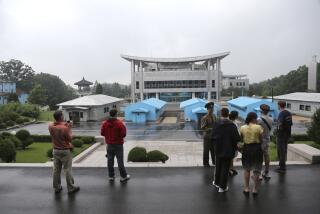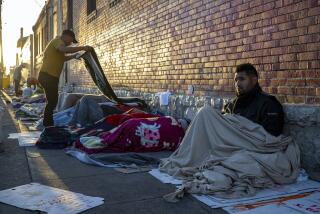We are Americans stranded in Peru by coronavirus. Why hasn’t our government helped?
About two months ago my wife, daughter and I decided to go to Peru for spring break.
As the day of our departure grew near, and coronavirus cases started appearing in the United States, we considered canceling our plans. But at the time, U.S. cities hadn’t yet imposed restrictions on movements, and Peru had no reported cases of the coronavirus. We figured, if anything, we would likely be safer in Peru than Los Angeles.
My wife and daughter flew to Lima on March 9 and I joined them a couple of days later. The plan was to spend a few days in the beach town of Paracas, then head for the mountains to see Inca ruins, including Machu Picchu.
But then, on the morning of March 16, a letter was left on our doorstep from the hotel informing us that the president of Peru had announced he was “closing the borders” for at least two weeks, effective at 11:45 that night. If we weren’t out by then, there was a likelihood we’d be stuck in Peru until at least March 31.
We immediately tried to book a flight out of the country to any destination, but with 10,000 foreigners all trying to leave Peru that day, we could find nothing. We decided to move to an Airbnb apartment in Lima while we worked on getting home, and after some minor drama with police checkpoints in the city, we got settled into our new digs.
The Peruvian people have been great. Polite, helpful and very patient and welcoming. But as nice as everyone is, we just want to get home. Our original return tickets on American Airlines were canceled a week ago, and the first available commercial flight to Los Angeles we could book wasn’t until April 1. We are booked on that flight, but who knows whether it will actually fly.
It’s extremely difficult to get accurate information about the situation, including from the U.S. Embassy in Lima, which has told us very little and offered no concrete advice for getting home. For news, we look to a Facebook group and a WhatsApp group for Americans stuck in Peru.
Last week, the Peruvian government dropped its prohibition on foreigners leaving, but neither the airlines nor the government has stepped up to provide flights yet. Over the weekend, Politico reported that the U.S. government couldn’t get approval from the Peruvian government for repatriation flights without also promising to pay for and arrange repatriation flights for Peruvians who wanted to return home.
Meanwhile, other governments, including Israel, France, Mexico and Iran, have already collected their people and flown them home.
On Friday we had a bit of hope when we heard there was a flight in the air on its way to pick up stranded Americans. We later learned from the embassy website that the flight carried only “a group of medically vulnerable U.S. citizens” as well as some government employees and their families.
For the rest of us, the U.S. State Department sent out a tweet late Friday night with this helpful advice: “U.S. citizens in Peru who wish to return to the United States are urged to contact airlines with flights to Peru to try to make travel arrangements.” As if.
Surely the U.S. State Department knows that no commercial flights are coming into or leaving Peru for at least several weeks. A few airlines have set up web pages where one can register as having an “interest” in taking a flight if one gets scheduled, but so far that has not resulted in any flight being scheduled.
We are not asking for a government handout. But under circumstances like this, where commercial airlines are not flying because of government edicts restricting travel, it seems reasonable to expect the U.S. government to behave like the world’s other governments.
On Sunday, President Trump said the government was working on getting those of us stranded in Peru home, and the embassy sent out a notice Monday morning saying that charter flights were being arranged “subject to reimbursement.” But we have heard nothing concrete about when they will happen.
The government needs to step in quickly to provide the means, at a reasonable price, for me, my family and other stranded Americans to return home. And if that means helping stranded Peruvians in the United States, too, so be it.
Brian D. Boydston is an attorney and resident of Los Angeles.
More to Read
A cure for the common opinion
Get thought-provoking perspectives with our weekly newsletter.
You may occasionally receive promotional content from the Los Angeles Times.










